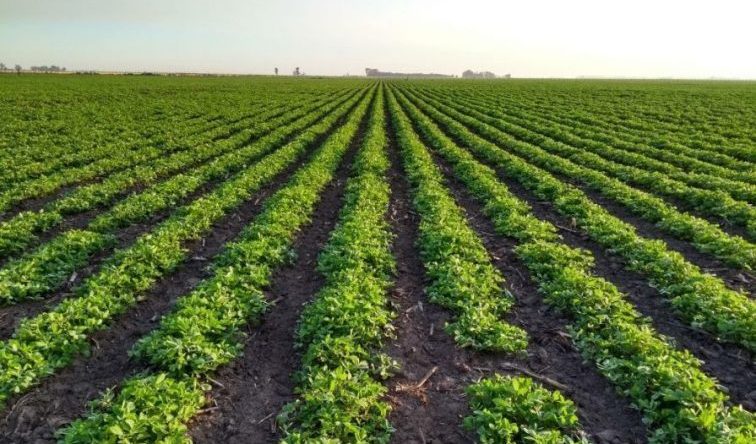
Peanuts have improved their general status in the last few weeks, aided by rainfalls and high temperatures which favored the development of the plants. Thanks to the last rains, which were registered during the first half of January, the reserve of useful water in the soil increased slightly to moderately in the main peanut areas of Argentina. Rainfalls varied in intensity and magnitude throughout the whole planted area although, in all cases, they were very favorable for the development of the crop.
With regard to temperatures, conditions were much warmer than normal in most of the country. A heat wave affected several locations in the North, Center and West of the peanut area, placing maximum temperatures above normal values according to local statistics (> 43ºC), during a period of 5 to 6 days. The other zones registered normal values for the summer season. As for the minimum temperatures, values were higher than the historical average in most of the Pampa region.
In those areas where scarce rainfall and extreme temperatures were recorded, hydric stress increased. This situation is triggered by the plants’ high water requirements, due to the fact that the crops are in full vegetative development phase. The current phenological state of the crop is R2-R3, which corresponds to states of full flowering and formation of boxes.
During the second week of January, there was a major storm that hit the West Zone (province of San Luis), causing not only intense rainfall but also hail, which brought damage to the peanut crop. As of the date of this report, it is very premature to draw conclusions in relation to the degree of damage suffered by the crop, although we can anticipate that there was a great defoliation of the plants and breaking of lateral branches. At first glance, the situation is not serious, since peanuts have an amazing capacity for recovery to generate new leaves and lateral branches. In order to accelerate this recovery process, an application of foliar fertilizer will be made in the coming days.
In conclusion, the peanuts continue to evolve adequately, thanks to the conditions of high insolation, high humidity in the soil and good weather, which reversed the delay previously reported.
Sourse: http://www.gastaldihnos.com.ar/en/

